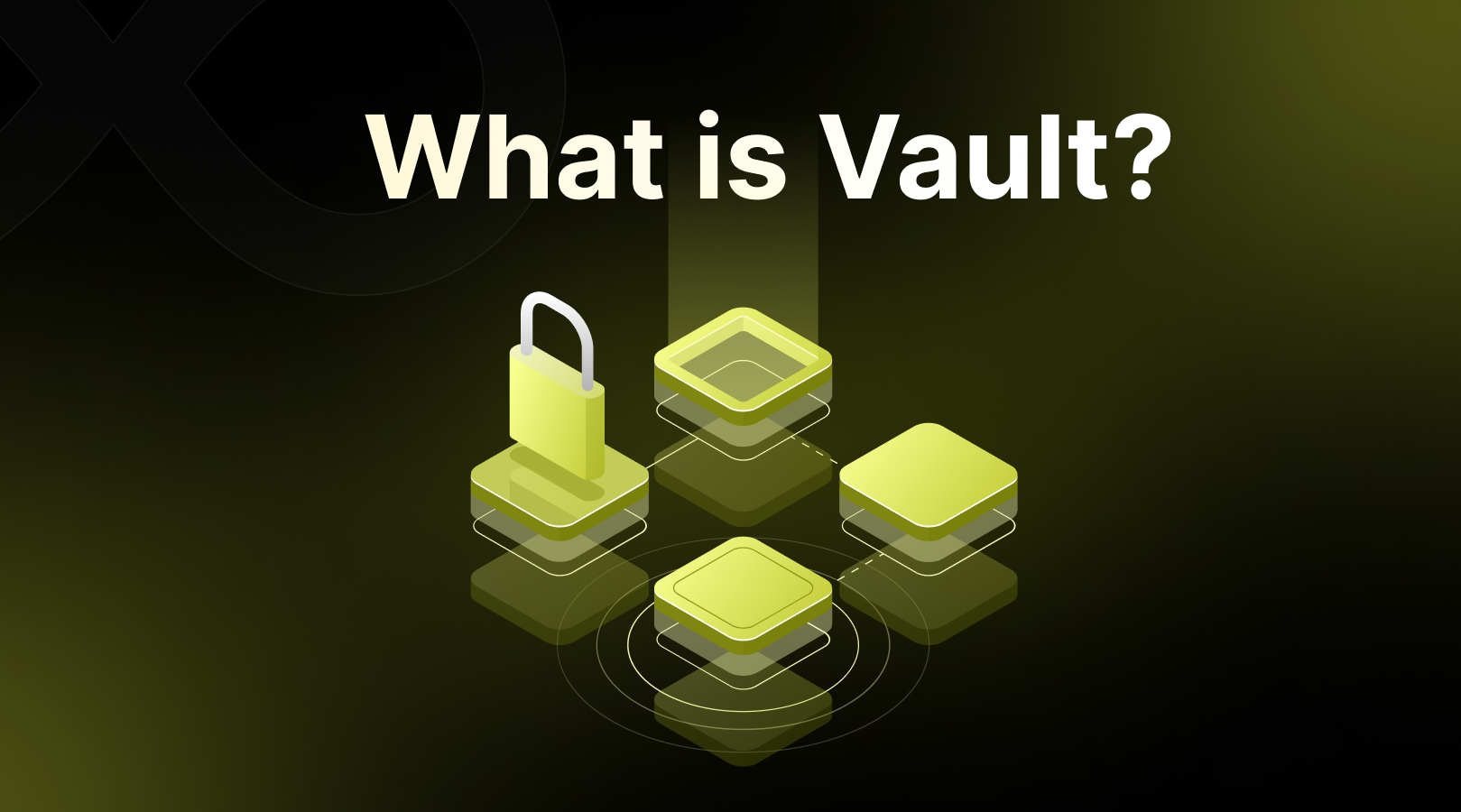- Blog post • 6 min read
What is Vault? A Deep Dive into the World of Secret Management
- Published on

What are Vaults?
In the digital age, the concept of a Vault extends far beyond its traditional physical counterpart. In fact, in the realm of information security, a Vault is a digital security mechanism specifically designed to manage and protect sensitive data like passwords, encryption keys, database credentials, and access tokens. These vaults utilize advanced encryption to ensure that such critical data is stored securely, accessible only to authorized users and systems.
Possible Vault Options
Two notable players in this space are HashiCorp Vault and Infisical. Both of these products provide a comprehensive solution for identity-based secrets and encryption management. They excel in automating and scaling secret management across various computing environments, encrypting data both during transit and at rest, and dynamically generating secrets, thus significantly enhancing an organization's data security infrastructure.
Why are Vaults needed?
The need for and benefits of vaults can be roughly split into two perspectives – Information Security (InfoSec) and DevOps. Both of these have several critical needs and challenges in managing and protecting sensitive credentials.
Benefits from an InfoSec Perspective:
- Mitigating Data Breaches: With the increasing prevalence of cyber-attacks and data breaches, vaults provide a robust defense mechanism. They secure sensitive data such as passwords and encryption keys, which are prime targets for cybercriminals.
- Regulatory Compliance: Many industries are subject to stringent data protection regulations. Vaults help organizations comply with these regulations by providing secure and auditable storage and management of sensitive data.
- Access Control and Authentication: Vaults facilitate granular access control, ensuring that only authorized personnel can access sensitive data. This is crucial in preventing unauthorized data access and leakage.
- Encryption Management: Vaults play a key role in managing encryption keys, which are essential for securing data at rest and in transit. Proper key management is a cornerstone of effective data security.
Benefits from a DevOps Perspective:
- Automating Secret Management: In a DevOps environment, where automation and speed are crucial, vaults automate the management of secrets (like API keys and credentials). This automation helps in maintaining a fast-paced, secure development and deployment cycle.
- Environment Consistency: Vaults ensure that all environments, from development to production, handle secrets consistently and securely. This uniformity is critical in avoiding security loopholes.
- Integration and Scalability: As DevOps practices involve integrating various tools and technologies, vaults provide a centralized way to manage secrets across these diverse platforms. They scale effectively as the infrastructure grows, maintaining security without hindering operational agility.
- Reducing Human Error: By automating secret management, vaults significantly reduce the risk of human error - such as hard-coded or poorly managed secrets - which can be a major source of security vulnerabilities.
How Do Vaults Work?
Vaults provide a secure and centralized environment for handling sensitive information like passwords, API keys, and encryption keys. They effectively address an issue known as secret sprawl by being a single source of truth for secrets.
Both Infisical and HashiCorp Vault stand out with their identity-based security approach. They ensure that access to secrets is meticulously controlled, depending on who or what is requesting access. This method guarantees that only verified and permitted users or systems can reach the stored data. Both platforms incorporate features such as dynamic secret generation, real-time encryption, and detailed access controls, all underpinned by thorough auditing processes to maximize data security.
Infisical distinguishes itself by emphasizing ease of use and versatility, making it suitable for a wide range of businesses. Its user-friendly features include automatic integrations with major infrastructure and developer tools, streamlined secret PR workflows, and a comprehensive dashboard that offers an overarching view of your secrets.
Self-hosted vs Cloud-based
The flexibility of these solutions in terms of deployment is another key aspect. They are designed to fit seamlessly into various deployment scenarios, be it on-premises or cloud-based. This flexibility is vital, allowing organizations to select a deployment model that best suits their specific infrastructure and security requirements. Regardless of where they are deployed, these vaults utilize robust encryption, stringent access policies, and detailed audit logs. This setup not only ensures top-level security but also facilitates efficient management and automation of the entire lifecycle and distribution of secrets.
What Are Some Secrets Management Best Practices?
Choosing a vault platform marks a crucial move towards sophisticated secret management at the enterprise level. An ideal vault solution in this field comes equipped with several essential features, reflecting the best practices in managing secrets:
- Dynamic Secrets: These vaults create temporary, time-limited credentials, akin to two-factor authentication methods. By not depending on fixed passwords, this approach greatly lessens the chances of unauthorized access. Each secret is valid only for a specified duration and is unique to a particular session, enhancing security.
- Secret Rotation: Continuously updating credentials is a key security tactic. Vaults regularly change passwords and keys, significantly reducing the impact if an account is compromised. In the event of a cyberattack, these regularly updated credentials can be quickly invalidated, limiting any potential breach.
- Privileged Access Management (PAM): These systems excel in overseeing accounts with high-level access privileges, often targeted for their reach to critical information. Vaults keep a close eye on these access rights, swiftly withdrawing them at any sign of unusual or unauthorized activity.
- Cloud Deployment and Flexibility: Opting for cloud-based vault services boosts efficiency and adaptability. This method offers quicker deployment, lower maintenance costs, and the agility to evolve with the business's infrastructure needs, providing a more dynamic approach than traditional on-premises setups.
- Audit and Compliance: These platforms also feature extensive auditing and reporting tools. These are vital for detecting and reacting to security incidents and crucial in meeting various regulatory compliance standards.
- Encryption-at-Rest and In-Transit: A standout trait of these platforms is their comprehensive encryption, safeguarding data both when stored and during transfer. This layered encryption approach protects data throughout its entire lifecycle in the vault.
- API Integration and Automation: The ability to integrate with various APIs and automation tools is also crucial. This integration enables seamless incorporation into existing systems, automating the distribution and management of secrets.
- Open Source with Enterprise Options: Many vault platforms are open source, offering transparency and community-driven enhancements. Additionally, they often have enterprise versions (e.g., Vault Enterprise or Infisical EE), providing professional support, advanced features, and scalability options for larger organizations.
In summary, integrating a vault platform with these capabilities is vital for effective, scalable, and compliant secret management in modern digital enterprises.

